I had the pleasure of attending the 60th annual management conference for the University of Chicago, Booth School of Business on Friday, May 11. The keynote panel on Energy was interesting, but the breakout panel on entrepreneurship was phenomenal. It was moderated by Steven Kaplan, a University of Chicago professor known for his leadership in the New Venture Challenge, one of the country’s premier student business competitions.
The three panelists, all of whom are now considered leaders in their industry, included Bryan Johnson, founder and CEO of Braintree; Dhiraj Rajaram, founder and CEO of Mu Sigmu; and Scott Griffith, CEO of Zipcar.
What stood out in my mind was the high level of importance each panelist placed on human capital and culture. All of the panelists had a great business idea, but none of them believed that they would be successful without a talented and committed team.
When Bryan Johnson started Braintree, he had clear and defined goals in mind. Simply, they were:
- Be the best payments provider in the industry.
- Be the best company an employee could work for.
- Be an organization that capable people would find interesting.
Bryan won the New Venture Challenge in 2007. After four years of bootstrapping the business, he accepted $34 million from Accel Partners. Braintree just celebrated its 53rd month of profitability. From my point of view, the most interesting fact is that no one has ever LEFT Braintree.
Similarly, Dhiraj Rajaran set a vision for Mu Sigma as seen through the eyes of his customers. He measures his business through three “Moments.”
- Moment of Thought — Do our customers feel that we have delivered, but can we still do more for them?
- Moment of Action — Will they act to buy our services and recommend us to others?
- Moment of Heart — Do our customers enjoy working with us?
When Dhiraj started the company, the picture was pretty stark. He was 28 years old, with no rolodex, and he had put his entire savings into the business (including his house). He talked to roughly 65 people before he could “beg” someone to come and work for him, all while not taking a salary for 3 1/2 years. That said, after finally convincing a Fortune 100 company to run a beta of his services, Mu Sigma has been enjoying a historic period of growth.
Scott Griffith refocused his life goals after a brush with cancer. Scott wanted to do something meaningful that had an impact in the world. Although he was not the founder of Zipcar, Scott joined the failing business in 2003.
Scott is a strong believer in using Net Promoter Score. In brief, the NPS is calculated when each customer is asked “On a scale of 0-10, would you refer us to a friend?” A nine or a ten is a good score. Sevens and eights are passive referrers who need to be converted. Anything below a seven is a “throwaway,” according to Scott.
That said, Scott spends time calling these low-ranking customers and trying to find out how his company can improve. This score is starting to be used internally as the company collects a new employee metric called the e-net promoter score. He believes that the use of both net promoter scores provide the best measure of how long-term shareholder value is created.
Each of these entrepreneurs commented on the value of having outstanding people on their teams. They agreed that to attract top talent, you need a mission, a vision, and an environment that embraces change. They talked about how a fledgling company will live or die by its first 15 hires. To thrive, a CEO needs to define the culture to welcome change and remove all the distracting politics. Leadership has to continue to focus on the core concepts that define the company, which translate into the environment that nurtures its people, and the world-class service it provides for its customers.
